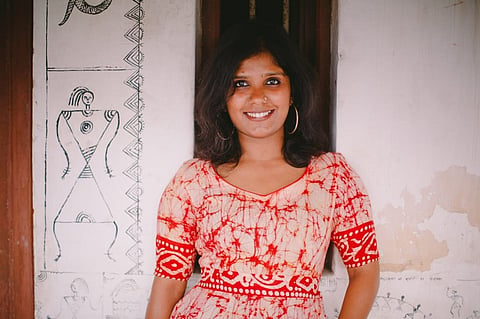

Rashtrakavi Kuvempu was one of the first major Kannada writers who addressed the issue of the caste system and its evils in Indian society. Through his poems, plays, novels and essays, Kuvempu shaped the dialogue surrounding caste discrimination in Karnataka’s social setup. Hindustani singer Gurupriya Atreya, in her contemporary composition of Kuvempu’s poem ‘Kula’, brings to life once again the poet’s dream of a caste-free society.
In an interview with TNM, Gurupriya speaks about how the realisation of caste-based discrimination in everyday scenarios stirred her to compose the song.
What inspired you to compose this song?
Around the time Gauri Lankesh was murdered, I had heard a very beautiful track that Vasu and Bindu sang for her, written by Mamata Sagar. On hearing it, I decided to look at our Kannada poets and their works, and casually picked up a collection of poems by Kuvempu called Navilu. Kula stood out. It resonated with me and the times we live in. The sound of the track is an absolute blend of two styles. I’m a Hindustani Classical singer. Madhav Ayachit is the music producer of Kula. He’s worked with Shekhar Kapur on a television series on TNT titled WILL and has a fantastic line-up. Madhav and I are high school buddies who decided to come together and put out this track, sticking to our respective styles and conveying the simple yet profound words of our Rashtrakavi.
Kuvempu challenges the caste divide in this powerful poem. He asks if those who give importance to lineage consider the caste of the cuckoo who sings beautiful songs, or of the bamboo flute that melodiously fills their ears. In a world increasingly divided, Kuvempu’s poem is just as relevant today as ever before, pricking at the heart of humanity, in search for love and empathy.
There are many poems written by Kuvempu that address the issue of the caste system. Why did you pick Kula?
We are supposed to be living in a time when one would think that the caste system is a rumour, it doesn’t exist. When people like me who are privileged try to speak about it within the family itself, people say – it’s the 21st century, what are you talking about. But no, more than ever before, caste and religion have become so significant in our society and are talked about even more today. We still wake up to horrible news reports of caste killings, domestic workers asked to enter through the back door at Brahmins’ homes, temple queues that are separate for Brahmins and non-Brahmins. Nothing has changed. If I may say so, in some cases I feel we are regressing. Kuvempu’s poems mostly address caste in society. Kula spoke to me owing to its simplicity. Even a child would understand Kula. The words are so simple, meaningful and really, the core of what a human being should know and live by.
That’s what made me choose Kula from his poems. Also, before I did Kula, I covered a song by AR Rahman – Maula Wa Sallim. I loved the song and I released it purely for the love of that song. But when I put it up on YouTube, so many people commented on it asking me why I was singing about a Muslim god when I am a Hindu. One person asked me why I could not sing about goddess Saraswati. Kula was, in a way, an answer to all those people.
Did any personal experience lead you to address this issue?
I grew up in a very typical Brahmin setup, in a joint family. However, my parents never really insisted on things that I’ve otherwise noticed in my neighbourhood, extended families and sometimes relatives. But over a period of time, I did understand that a lot of happenings around me were a part of our conditioning and have remained with us.
For example, I still have older relatives who will not eat food cooked by a non-Brahmin. I was always told, you can choose to get married by falling in love, but ensure he’s a Brahmin. Growing up in a Brahmin joint family, when I went over to my relatives’ place, they would not allow me to touch them if I was menstruating. If a person had taken bath and I accidentally touched them, they would go and have a bath again.
Another thing is access to art. If you see, music and art is so easily accessible to people from the upper castes, but those who are not privileged have to work doubly hard to get access to art. It’s not so easy for them. Art is supposed to be a free space but it’s not. This realisation also made me want to address the issue.
Will you be composing more songs based on Kuvempu’s poems?
The next song that I’m going to be releasing shortly is a poem by Meerabai in Brij Basha that says that nothing is greater and purer than love. Surrender to love, is what she says. I have been working with Bhakti poetry and with works of saints from the Bhakti movement such as Kabir, Meera, Tukaram, Tulsidas and Sufis. But this is my first work with a Kannada poet from the 20th century. The plan is to work on more writings of Kuvempu, Akkamahadevi, Basavanna and while we are at it, to make more mindful choices that have a message.